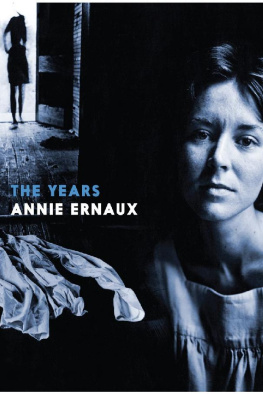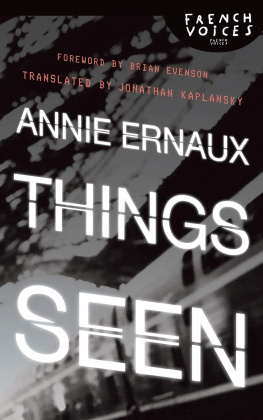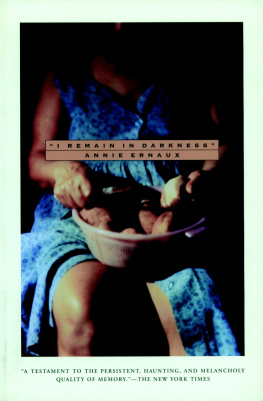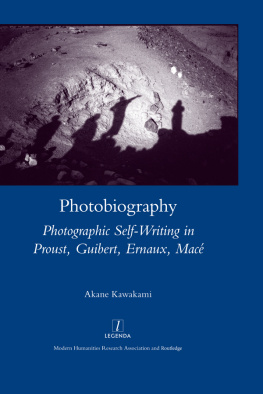Annie Ernaux - Getting Lost
Here you can read online Annie Ernaux - Getting Lost full text of the book (entire story) in english for free. Download pdf and epub, get meaning, cover and reviews about this ebook. year: 2022, genre: Detective and thriller. Description of the work, (preface) as well as reviews are available. Best literature library LitArk.com created for fans of good reading and offers a wide selection of genres:
Romance novel
Science fiction
Adventure
Detective
Science
History
Home and family
Prose
Art
Politics
Computer
Non-fiction
Religion
Business
Children
Humor
Choose a favorite category and find really read worthwhile books. Enjoy immersion in the world of imagination, feel the emotions of the characters or learn something new for yourself, make an fascinating discovery.

- Book:Getting Lost
- Author:
- Genre:
- Year:2022
- Rating:3 / 5
- Favourites:Add to favourites
- Your mark:
- 60
- 1
- 2
- 3
- 4
- 5
Getting Lost: summary, description and annotation
We offer to read an annotation, description, summary or preface (depends on what the author of the book "Getting Lost" wrote himself). If you haven't found the necessary information about the book — write in the comments, we will try to find it.
Getting Lost — read online for free the complete book (whole text) full work
Below is the text of the book, divided by pages. System saving the place of the last page read, allows you to conveniently read the book "Getting Lost" online for free, without having to search again every time where you left off. Put a bookmark, and you can go to the page where you finished reading at any time.
Font size:
Interval:
Bookmark:

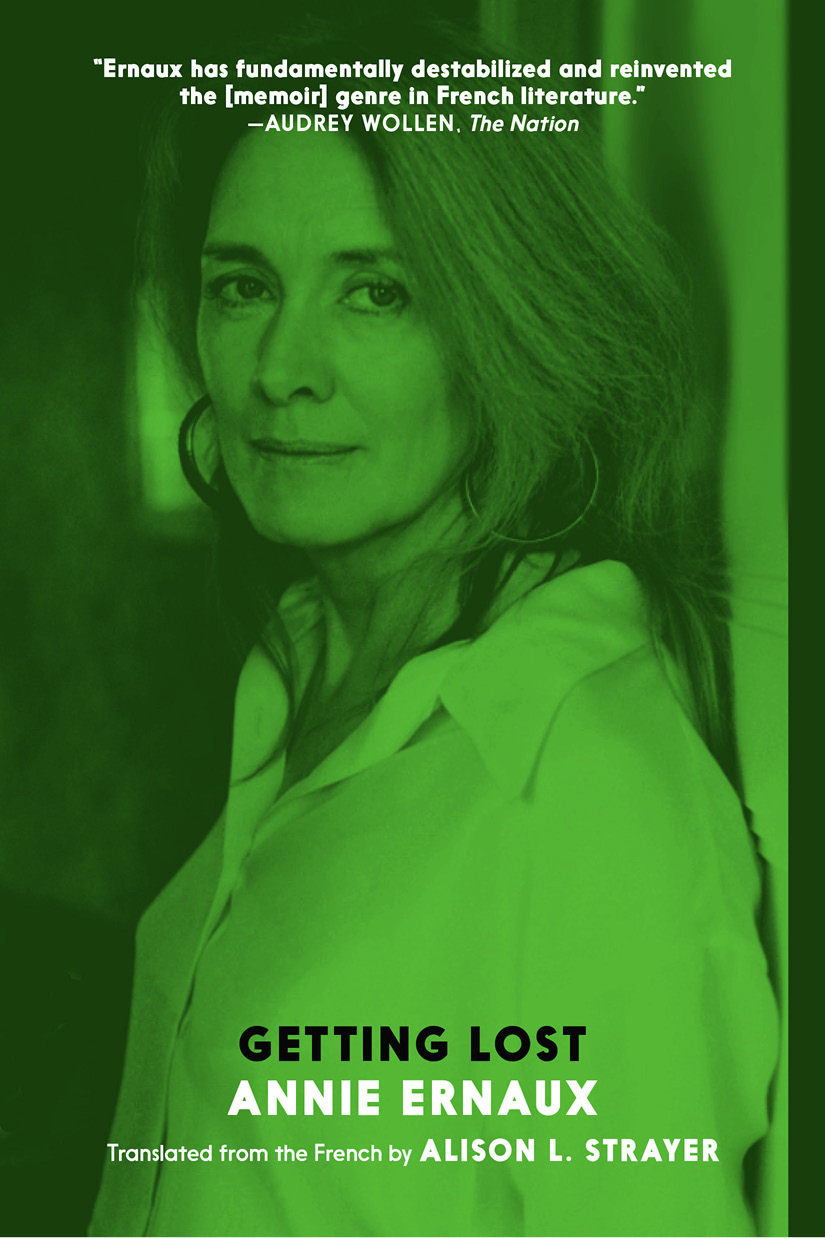
GETTING LOST
ANNIE ERNAUX
Translated by Alison L. Strayer

Seven Stories Press
New York Oakland
Copyright Editions GALLIMARD, Paris, 2001
English translation Alison L. Strayer, 2022
Originally published in French as Se Perdre (Paris: Gallimard, 2001).
All rights reserved. No part of this book may be reproduced, stored in a retrieval system, or transmitted in any form, by any means, including mechanical, electronic, photocopying, recording, or otherwise, without the prior written permission of the publisher.
Seven Stories Press
140 Watts Street
New York, NY 10013
www.sevenstories.com
Library of Congress Cataloging-in-Publication Data
Names: Ernaux, Annie, 1940- author. | Strayer, Alison L., translator.
Title: Getting lost / Annie Ernaux ; translated by Alison L. Strayer.
Other titles: Se Perdre. English
Description: New York : Seven Stories Press, [2022] | Originally published
in French as Se Perdre (Paris: Gallimard, 2001).
Identifiers: LCCN 2022013182 | ISBN 9781644212196 (trade paperback) | ISBN
9781644212202 (ebook)
Subjects: LCSH: Ernaux, Annie, 1940---Diaries. | Ernaux, Annie,
1940---Relations with men. | Middle-aged women--France--Diaries. |
Man-woman relationships--France.
Classification: LCC PQ2665.R67 S413 2022 | DDC 843/.914--dc23/eng/20220708
LC record available at https://lccn.loc.gov/2022013182
College professors and high school and middle school teachers may order free examination copies of Seven Stories Press titles. Visit https://www.sevenstories.com/pg/resources-academics or email academics@sevenstories.com .
Printed in the United States of America
9 8 7 6 5 4 3 2 1
Voglio vivere una favola
(I want to live a fable)
Anonymous inscription on the steps of
the Basilica of Santa Croce, Florence
O n Nov. 16, 1989, I phoned the Soviet embassy in Paris and asked to speak to Mr. S. The switchboard operator did not reply. After a long silence, a womans voice said: You know, Mr. S returned to Moscow yesterday. I immediately hung up. I felt as if Id heard this sentence before, over the phone. The words were not the same but they had the same meaning, the same weight of horror, and were just as impossible to believe. Later, I remembered the announcement of my mothers death, three and a half years earlier, how the nurse at the hospital had said: Your mother passed away this morning after breakfast.
The Berlin Wall had fallen several days before. The Soviet regimes established in Europe were toppling one after the other. The man who had just returned to Moscow was a faithful servant of the USSR, a Russian diplomat posted in Paris.
I had met him the previous year on a writers junket to Moscow, Tbilisi, and Leningrad, a voyage he had been assigned to accompany. We had spent the last night together, in Leningrad. After returning to France, we continued to see each other. The ritual was invariable. He would ring to ask if he could come around to see me in the afternoon or evening, or, more rarely, a day or two later. He would arrive and stay just a few hours, which we spent making love. Then he left, and I would live in wait for his next call.
He was thirty-five. His wife worked as his secretary at the embassy. His trajectory, which I pieced together over the course of our meetings, was typical of a young apparatchik: membership in the Komsomol and then in the CPSU (Communist Party of the Soviet Union), time spent in Cuba. He spoke French quickly, with a strong accent. Though outwardly a partisan of Gorbachev and perestroika, when hed had a drink, he mourned the time of Brezhnev and made no secret of his veneration of Stalin.
I never knew anything about his activities, which, officially, were related to culture. Today, I am amazed that I did not ask more questions. Nor will I ever know what I meant to him. His desire for me was the only thing I was sure of. He was, in every sense of the word, the shadow lover.
During this period, I wrote nothing but the articles which I was asked to do for magazines. The only place where I truly wrote was in the journal I had kept, on and off, since adolescence. It was a way of enduring the wait until we saw each other again, of heightening the pleasure by recording the words and acts of passion. Most of all, it was a way to save life, save from nothingness the thing that most resembles it .
After he left France, I started to write a book about this passion which had swept through me and continued to live inside me. I worked on the book sporadically, finished it in 1991, and published it in 1992 as Simple Passion .
In the spring of 1999, I traveled to Russia again. I had not been back since my trip in 1988. I did not see S, but this made no difference to me. In Leningrad, which had become Saint Petersburg again, I could not recall the name of the hotel where I had spent the night with him. During the visit, the only trace that remained of this passion was my knowledge of a few words of Russian. Exhaustingly, and in spite of myself, I continually tried to decipher the Cyrillic script on signs and billboards. It surprised me that I knew those words, that alphabet. The man for whom I had learned them had ceased to exist in me, and I no longer cared whether he was alive or dead.
In January or February 2000, I started to reread my journals from the year of my passionate affair with S. It had been five years since I had opened them. (For reasons that need not be specified here, they had been stored in a place that made them unavailable to me.) I perceived there was a truth in those pages that differed from the one to be found in Simple Passion something raw and dark, without salvation , a kind of oblation . I thought that this, too, should be brought to light.
I neither altered nor removed any part of the original text while typing it into the computer. For me, words set down on paper to capture the thoughts and sensations of a given moment are as irreversible as timeare time itself. I simply used initials when expressing a judgment that I felt could harm the person to whom they referred, and also to designate the object of my passion, S. Not that I believe that in doing so, I could protect his identitya vain illusion, if there ever was onebut because the de-realizing effect of the initial seemed consistent with what this man was to me: the embodiment of the absolute, of something which instills a nameless terror .
The outside world is almost totally absent from these pages. To this day, I continue to feel it was more important to record daily thoughts and actions, the things which constitute the novel of life that a love affair is (details from the socks he did not remove while making love to his desire to die at the wheel of his car), rather than the current events of the period, which can always be checked in archives.
I am conscious that I am publishing this journal because of an inner imperative, without concern for how S might feel. He could rightly judge it an abuse of literary power, or even a betrayal. I could understand if he defends himself with laughter or disdain: I only saw her to get my rocks off. But I would rather that he accept (even if he doesnt understand) that for months, without knowing it, he embodied the principle, wondrous and terrifying, of desire, of death and writing.
Autumn 2000
1988
September
Tuesday 27
S... the beauty of it all: the very same desires, the same actions as at other times in the past, in 58 and 63, and with P. The same drowsiness, even torpor. Three scenes stand out. That evening (Sunday) in his room, as we sat close to each other, touching, saying nothing, willing and eager for what would follow, which still depended on me. His hand passed close to my legs, stretched out in front of me, and brushed them each time he put his cigarette ash in the container on the floor. In front of everyone. We talked as if nothing were going on. Then the others leave (Marie R, Irne, RVP) but F hangs back, waiting to leave with me. I know that if I leave Ss room now, I wont have the strength to return. Then everythings a blur. F is outside the room, or almost, the door is open, and it seems to me that S and I throw ourselves at each other. Then the door is closed (by whom?) and we are just inside, in the entry hall. My back, pressed against the wall, switches the light off and on. I have to move aside. I drop my raincoat, handbag, suit jacket. S turns off the light. The night begins, which I experience with absolute intensity (along with the desire never to see him again, as with other men in the past).
Font size:
Interval:
Bookmark:
Similar books «Getting Lost»
Look at similar books to Getting Lost. We have selected literature similar in name and meaning in the hope of providing readers with more options to find new, interesting, not yet read works.
Discussion, reviews of the book Getting Lost and just readers' own opinions. Leave your comments, write what you think about the work, its meaning or the main characters. Specify what exactly you liked and what you didn't like, and why you think so.


